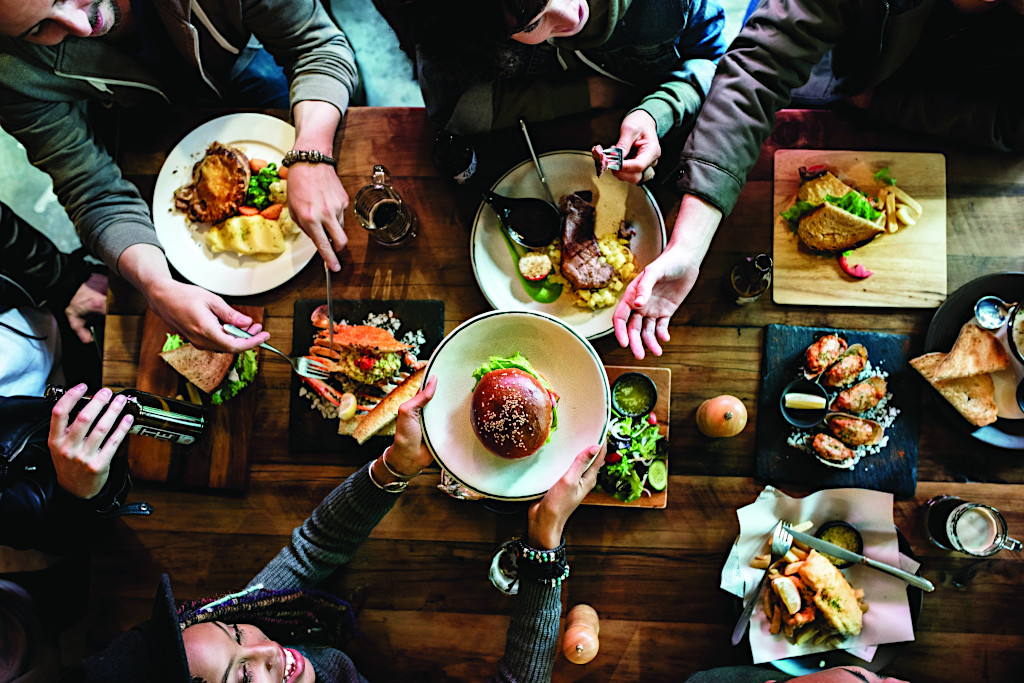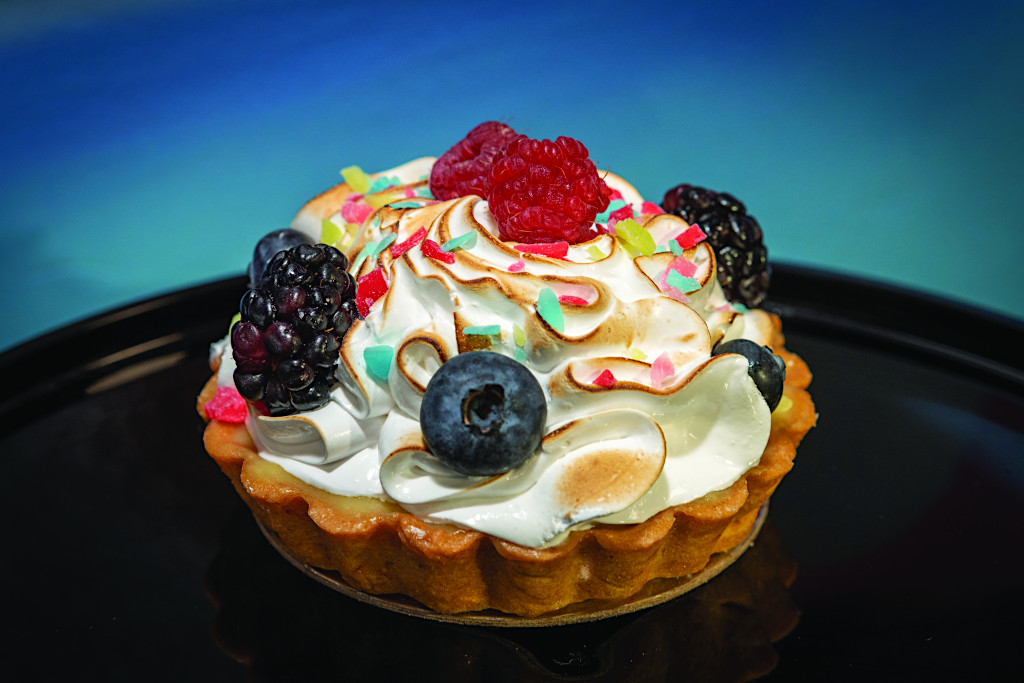
Sugar and Salt
Photo: RVA Imaging
Dating to 1888, Craddock-Terry was once the backbone of the Lynchburg economy. Producing nearly 100,000 pairs of shoes daily at its peak, it became the world’s fifth largest shoe factory.
The reimagined property abounds with historical homages and artifacts. Giant red pumps adorn the exteriors, while the outdoor “LOVE”-emblazoned pump installation is a ready photo-op. Succeeding her recently retired predecessor Buster Brown, wirehaired fox terrier Penny Loafer is the hotel’s official canine ambassador. Different shoe types mark each guest room door, with room service breakfast delivered in wooden shoe boxes.
Riding the bluffs overlooking the James River, the hotel also features the innovative stylings of Michelin-trained Culinary Director Jason Arbusto. The CIA graduate, whose global resume includes working with three-Michelin-star chef Alain Ducasse both in France and Las Vegas, works his craft at upscale seafood- and steak-driven Shoemakers American Grille (shoemakersdining.com) and casual sibling Waterstone Pizza waterstonepizza.com).
Shoemakers’ highlights include the Honey-Glazed Warm Mozzarella, Crispy Brussel Sprouts and Signature Crab Cake, with Virginia well represented on the global wine list. Waterstone is a convivial spot for handtossed, fire-roasted gourmet pizza, and regional craft beers. Both venues offer indoor and al fresco dining, and the blufftop promenades by Shoemakers and river access from Waterstone are ideal for post-dining strolls.
ALEXANDRIA
Rated a Virginia All-Star for LGBTQ rights by the Human Rights Campaign Municipality Equality Index in 2019, and proudly participating in the Virginia Tourism Corporation’s statewide LGBTQ initiative (virginia.org/lgbt) to welcome all visitors, Alexandria (alexandriava.com) also features an all-inclusive dining scene.
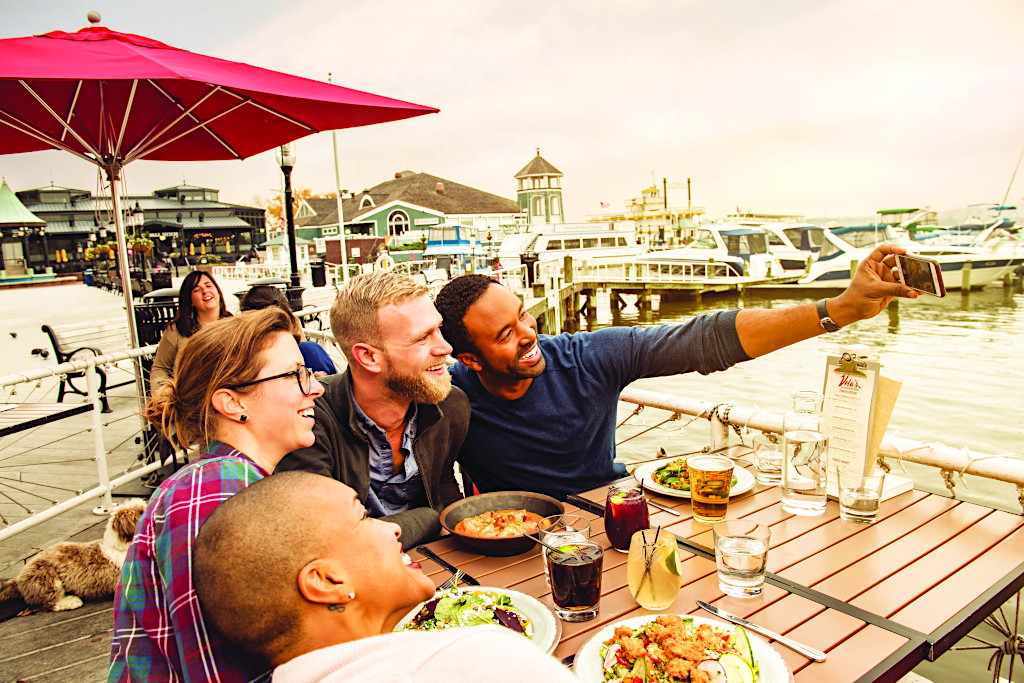

LGBT Waterfront Dining in Alexandria
Photo: Todd Wright for VTC
Lined with restaurants, hotels and shops, King Street has been the center of action since the city’s founding in 1749. Originated by star Belgian chefrestaurateur Robert Wiedmaier, Brabo (1600 King Street. Tel: 703-894-3440. braborestaurant.com) was my first taste of culinary Alexandria back in 2012. Still going strong as a brasserie and tasting room at the Kimpton Lorien Hotel & Spa (lorienhotelandspa.com), the tagline of “Cocktails, Conversation and Classic French Cuisine” says it all.
Updating an 1800’s feed warehouse by Alexandria’s new Potomac-facing Waterfront Park, Virtue Feed & Grain (106 South Union Street. Tel: 571-970-3669. virtuefeedgrain.com) is a lively two-level spot for modern American fare.
After St. Augustine, the Patron Saint of Brewers, Augie’s Mussel House & Beer Garden (1106 King Street. Tel: 703-721-3970. eataugies.com) is a popular neighborhood lure for brews, mussels, and other Belgian bites, and Alexandria’s only open-air beer garden.
Opened in 1973, Taverna Cretekou (818 King Street. Tel: 703-548-8688. tavernacretekou.com) is an energetic go-to for regional Greek cuisine.
Hidden at the back of a Sugar Shack donut shop, nautical-themed Captain Gregory’s (804 North Henry St. Tel: 571-659-4934. captaingregorys.com) is your speakeasy-style cabin for rotating craft cocktails, snacks, and small plates.
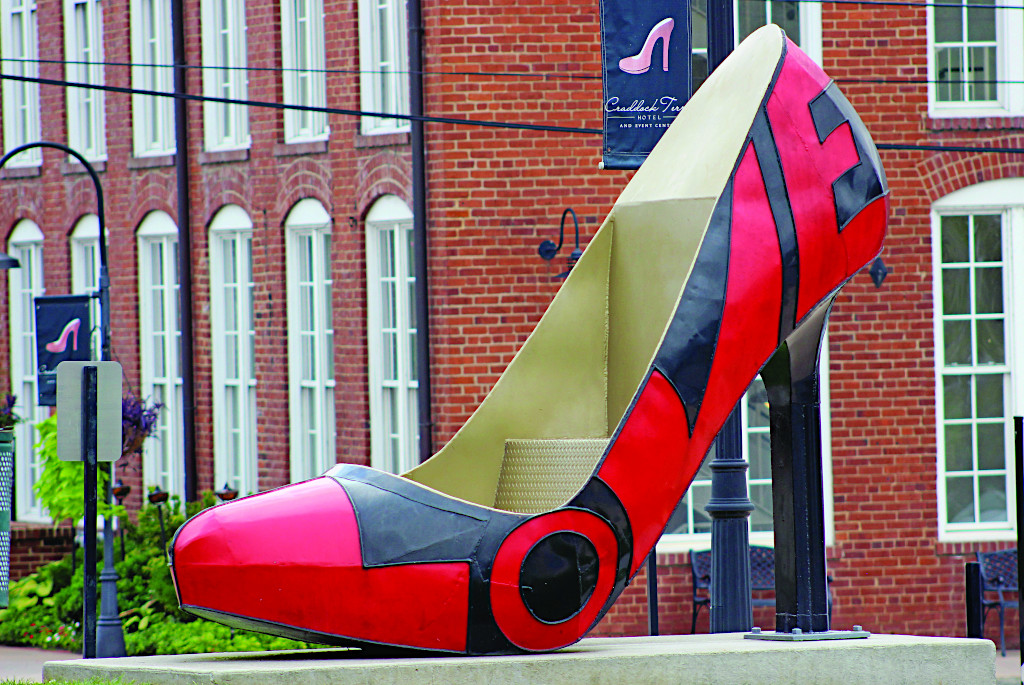

Craddock Terry Hotel LOVE Pump
Photo: Jeff Heilman
If Thomas Jefferson is America’s viticultural patriarch, then George Washington, a leading producer in his time, is the father of American whiskey. Faithfully reconstructed in 2007, George Washington’s Distillery ((3200 Mount Vernon Memorial Highway, Mount Vernon. Tel: 703- 780-2000. mountvernon.org/the-estate-gardens/distillery) at his Mount Vernon estate produces small batch spirits and offers tours.
VIRGINIA WINE COUNTRY
Virginia may be the birthplace of American wine, but success was long tangled in the vines. Around 1609, Jamestown colonists made a failing attempt at winemaking using local grapes. Ten years later, the Jamestown Assembly’s Acte 12 required each male settler to cultivate at least ten g rapevines. The American wine industry was on, but it would take nearly 400 years for Virginia wines to fully take root.
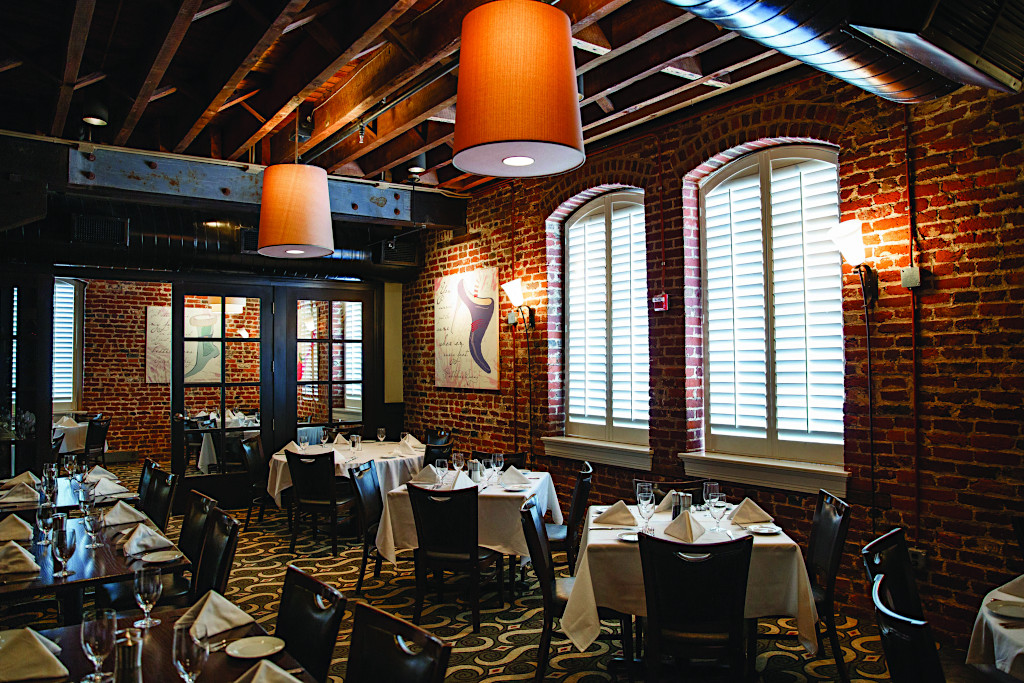

Shoemakers American Grille
Photo: Courtesy of Craddock Terry Hotel
Winter cold, summer droughts, and native pathogens were the main culprits, perennially thwar ting the cultivation of classic European Vitis vinifera vines.


